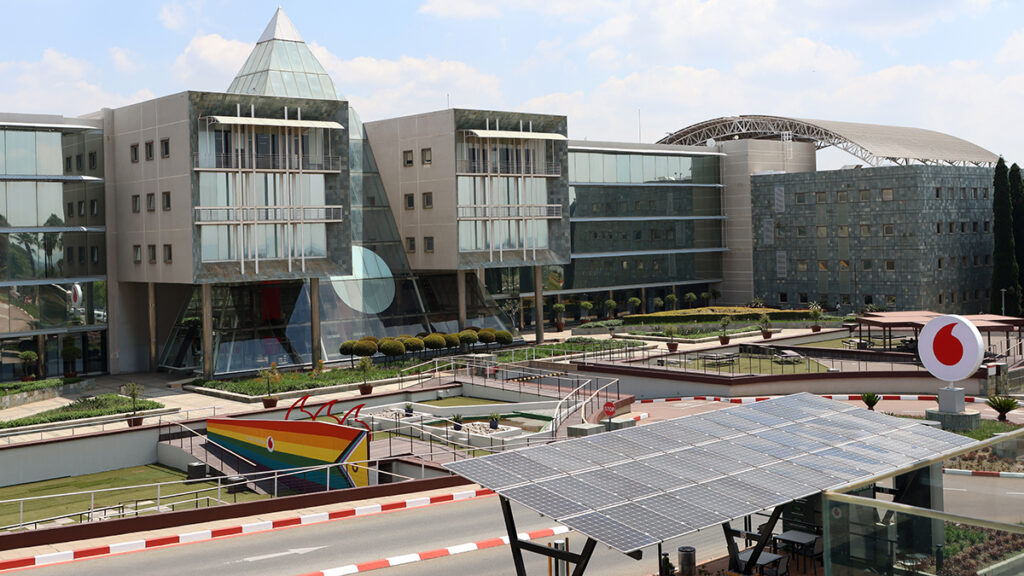Vodacom says it is not sure what “fair compensation” actually amounts to.
Please Call Me inventor Nkosana Makate and his legal team are expected to file a reply affidavit in the Constitutional Court (Concourt) this week opposing the relief sought by Vodacom.
This comes as Vodacom appeals in the last week of February against a Supreme Court of Appeal (SCA) ruling that last month ordered the carrier to determine Mr Makate's new remuneration within 30 days of the order. This measure was taken after applying to the court for a grace period.
According to the judgment, Vodacom awarded Makate the total voice revenue (including interest) earned by the “Please Call Me” service from prepaid or contracted services from March 2001 to March 2021 (18 years). 5% to 7.5% of the amount must be paid to Makate.
Makate also said he is entitled to 27% of the Please Call Me messages sent each day in return call revenue.
Vodacom said in its ConCourt appeal that the SCA's order violates the rule of law in Article 1 of the 1996 South African Constitution and deprives operators of their right to a fair trial under Article 34 of the Constitution. Stated.
The news agency further said that if the SCA's ruling is upheld, it will have a negative impact on employees, shareholders and the company's contribution to finances.
“As a responsible corporate citizen, Vodacom respects the judicial system and complies with South African law. Having considered the SCA judgment and order, we find that there are important aspects of this matter that are inconsistent with the spirit of the law and that the judgment “It is Vodacom's view that the order is fundamentally flawed,” Vodacom said.
“It is clear from the SCA’s dissenting judgment that the majority judgment ignored or ignored many of the issues between the parties and the evidence and submissions related to those issues.”
Vodacom said that as a matter of law, the application for a stay of appeal required several submissions.
- The SCA is misdirecting itself by considering and deciding issues that had not been adjudicated by either Vodacom or Makate.
- Although the SCA has selectively chosen to consider only Makate's evidence, as in the case of the model for calculating the remuneration paid to Makate, this point raised by Vodacom, which challenges Makate's version, ignores the body of evidence regarding this.
- SCA orders are incomprehensible, incomprehensible, and vague, making them impossible to implement or enforce.
Makate has until March 13 to submit documents in response to Vodacom's claims. He is expected to refute these claims and provide further motivation as to why the February SCA order should be upheld.
In a statement sent to ITWeb, Vodacom spokesperson Byron Kennedy said: “Since the passing of the judgment, Vodacom filed an application for leave to appeal the SCA’s judgment and order on February 27, 2024. Mr. Makate’s response to Vodacom’s application is scheduled for February 27, 2024. This week's course. ”
Asked if Vodacom and Makate were in talks, Mr Kennedy said he could not comment further.
If Makate provides new information to the court this week, according to the Superior Courts Act, the court will require Vodacom to file a replying affidavit, providing evidence to rebut the case the defendants set out in their replying affidavit. You will have a grace period of 10 days to submit your application. 2013.
Mr Makate, a former telecoms employee, and Vodacom have been embroiled in a lawsuit over the Please Call Me product for almost 16 years.
Mr Makate had previously claimed that Vodacom was liable to pay a settlement of R10.2 billion, excluding unpaid interest and legal costs incurred.
In 2021, he rejected the R47 million offer and applied to the Gauteng Division of the South African High Court to have the Vodacom Group CEO's decision set aside for judicial review.
Vodacom Group Chief Financial Officer Raisibe Morati recently said in a media briefing that he was not sure what “fair remuneration” actually meant.
ITWeb reached out to Makate and his legal representatives at law firm Stemela & Lubbe for comment, but were told they were not in a position to respond.

